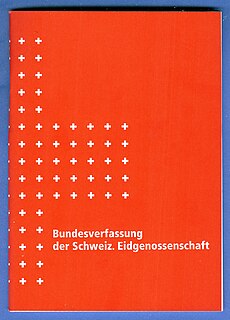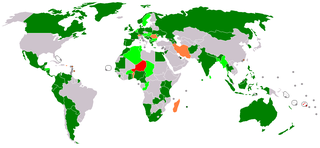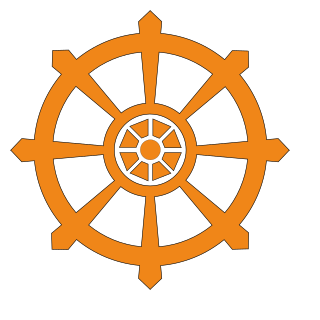History
ISHR has been involved in the development of international standards and protection mechanisms relevant to human rights defenders. These include advocacy around the drafting of the 1996 ECOSOC Resolution providing for the accreditation of NGOs to participate in the work of the Commission on Human Rights and the drafting of the UN Declaration on the Right and Responsibility of Individuals, Groups and Organs of Society to Promote and Protect Universally Recognized Human Rights and Fundamental Freedoms in 1998. ISHR's advocacy was also assisted in the creation of the mandates of the UN and African Commission on Human and Peoples' Rights special rapporteurs on human rights defenders in 2000 and 2005, respectively.
In 2003, ISHR assumed a facilitating role at the NGO Forum prior to the annual meeting of African Commission and became a co-facilitator of NGOs for the Asia Pacific Forum in 2006.
In 2006, ISHR was instrumental in the drafting of the Yogyakarta Principles on the application of international human rights law in relation to sexual orientation and gender identity. It also played a central role in the creation of the United Nations Human Rights Council, particularly the drafting of the modalities of the Universal Periodic Review mechanism (UPR) and the review of the system of special procedures.
In 201,1 ISHR's sustained advocacy on the issue of reprisals and intimidation faced by human rights defenders led to the adoption of a UN Human Rights Council resolution condemning and strengthening protections against reprisals.
In 2012, working with NGO partners such as Amnesty International, ISHR led civil society efforts to strengthen UN human rights treaty body, prevent their weakening, and better connect their work with victims and human rights defenders.
In 2013, an ISHR proposal to develop a model national law on the recognition and protection of human rights defenders was unanimously endorsed by the International Human Rights Experts Conference. Working with supportive states and NGOs, ISHR advocacy led to the adoption of a Human Rights Council resolution calling on all States to review and amend national laws to respect and protect the work of human rights defenders.
The United Nations Commission on Human Rights (UNCHR) was a functional commission within the overall framework of the United Nations from 1946 until it was replaced by the United Nations Human Rights Council in 2006. It was a subsidiary body of the UN Economic and Social Council (ECOSOC), and was also assisted in its work by the Office of the United Nations High Commissioner for Human Rights (UNOHCHR). It was the UN's principal mechanism and international forum concerned with the promotion and protection of human rights.

The United Nations Human Rights Council (UNHRC) is a United Nations body whose mission is to promote and protect human rights around the world. The Council has 47 members elected for staggered three-year terms on a regional group basis. The headquarters of the Council are at the United Nations Office at Geneva in Switzerland.

The International Commission of Jurists (ICJ) is an international human rights non-governmental organization. It is a standing group of 60 eminent jurists—including senior judges, attorneys and academics—who work to develop national and international human rights standards through the law. Commissioners are known for their experience, knowledge and fundamental commitment to human rights. The composition of the Commission aims to reflect the geographical diversity of the world and its many legal systems.
The World Organisation Against Torture is the world's largest coalition of non-governmental organisations fighting against arbitrary detention, torture, summary and extrajudicial executions, forced disappearances and other forms of violence. With more than 200 affiliated organisations in its SOS-Torture Network, the OMCT aims at accompanying, reinforcing and protecting anti-torture organisations in particular in erosive environments and provides a comprehensive system of support and protection for human rights defenders around the world. The global network consists of local, national and regional organisations, which share the goal of eradicating torture and fostering respect of human rights for all.
The International Federation for Human Rights is a non-governmental federation for human rights organizations. Founded in 1922, FIDH is the third oldest international human rights organisation worldwide after Anti-Slavery International and Save the Children. As of 2016, the organization is made up of 184 member organisations including Ligue des droits de l'homme in over 100 countries.
A human rights defender or human rights activist is a person who, individually or with others, acts to promote or protect human rights. They can be journalists, environmentalists, whistle-blowers, trade unionists, lawyers, teachers, housing campaigners, participants in direct action, or just individuals acting alone. They can defend rights as part of their jobs or in a voluntary capacity. As a result of their activities, human rights defenders (HRDs) are often subjected to reprisals including smears, surveillance, harassment, false charges, arbitrary detention, restrictions on the right to freedom of association, physical attack, and even murder. In 2020, at least 331 HRDs were murdered in 25 countries. The international community and some national governments have attempted to respond to this violence through various protections, but violence against HRDs continues to rise. Women human rights defenders and environmental human rights defenders face greater repression and risks than human rights defenders working on other issues.

Human rights are largely respected in Switzerland, one of Europe's oldest democracies. Switzerland is often at or near the top in international rankings of civil liberties and political rights observance. Switzerland places human rights at the core of the nation's value system, as represented in its Federal Constitution. As described in its FDFA's Foreign Policy Strategy 2016-2019, the promotion of peace, mutual respect, equality and non-discrimination are central to the country's foreign relations.
Franciscans International (FI) is a non-governmental organization (NGO) with general Consultative Status at the United Nations. The organization operates under the sponsorship of the Conference of the Franciscan Family (CFF) and serves all members of the Franciscan family, as well as the global community by bringing spiritual, ethical, and Franciscan values to the United Nations and international organizations". The organization has headquarters in New York City, Geneva, and Bangkok.
The Commonwealth Human Rights Initiative (CHRI) is an independent, non-partisan & nonprofit international non-governmental organisation which works towards the practical realisation of human rights in the countries of the Commonwealth.

The Center for Women's Global Leadership, based at Rutgers University, was founded in 1989 by Charlotte Bunch, the former executive director and an internationally renowned activist for women's human rights. Executive Director Krishanti Dharmaraj is also the founder of the Dignity Index and co-founder of WILD for Human Rights and the Sri Lanka Children's Fund. The former executive director, Radhika Balakrishnan, is now the faculty director, and a professor in the Department of Women's and Gender Studies at Rutgers, chair of the Board of the US Human Rights Network, and a board member of the Center for Constitutional Rights. Located on Douglass Residential College at Rutgers University, CWGL is a unit of International Programs within the School of Arts and Sciences and is a member of the Institute for Women's Leadership, a consortium of women's programs at Rutgers.
The Universal Periodic Review (UPR) is a mechanism of the United Nations (UN) Human Rights Council (HRC) that emerged from the 2005 UN reform process. Commonly referred to as the UN-UPR, it was established by General Assembly resolution 60/251 of 3 April 2006, the UN-UPR periodically examines the human rights performance of all 193 UN Member States. It is intended to complement, not duplicate, the work of other human rights mechanisms, including the UN human rights treaty bodies. This is the first international human rights mechanism to address all countries and all human rights. The Working Group on the UPR, which is composed of the HRC's 47 Member States and chaired by the HRC President, conducts country reviews.

The Global Alliance of National Human Rights Institutions (GANHRI), formerly known as the 'International Coordinating Committee of National Human Rights Institutions', is a global network of national human rights institutions (NHRIs) – administrative bodies set up to promote, protect and monitor human rights in a given country. The GANHRI, whose full legal title is the "Global Alliance for National Human Rights Institutions", coordinates the relationship between NHRIs and the United Nations human rights system, and is unique as the only non-UN body whose internal accreditation system, based on compliance with the 1993 Paris Principles, grants access to UN committees. Institutions accredited by the Subcommittee for Accreditation (SCA) of the GANHRI with "A status", meaning full compliance with the Paris Principles, are usually accorded speaking rights and seating at human rights treaty bodies and other UN organs, mainly to the Human Rights Council. The GANHRI representative often presents statements on behalf of individual NHRIs or the regional groups.
Alkarama is an independent Swiss-based human rights non-governmental organization established in 2004 to assist all those in the Arab World subjected to, or at risk of, extrajudicial killings, disappearances, torture, and arbitrary detention. Acting as a bridge between individual victims in the Arab World and international human rights mechanisms, Alkarama works towards an Arab World where all individuals live free, with dignity, and protected by the rule of law.

The Asian Forum for Human Rights and Development (FORUM-ASIA) [previously known as Forum-Asia] is a membership-based regional human rights organisation with 85 member organisations in 23 countries across Asia. It is committed to the promotion and protection of all human rights including the right to development.
The Universal Periodic Review (UPR) is a state monitoring mechanism of the United Nations Human Rights Council (HRC). It was established by General Assembly resolution 60/251 in 2006 to periodically review the protection and promotion of human rights in each of the 193 United Nations (UN) Member States. New Zealand has been reviewed twice via the UPR in 2009 and 2014.
The Association of Ukrainian Human Rights Monitors on Law Enforcement is a Ukrainian human rights organization that oversees nationwide monitoring of Ukrainian law enforcement conduct, utilizing its resources to ensure the active preservation of human rights and fundamental freedoms in the Central European country.

Tibet Justice Center, is an American legal association founded in 1989 that advocates human rights and self-determination for the Tibetan people.

The Human Rights Network - Uganda (HURINET) is a Ugandan non-governmental organization (NGO) whose mission is foster the promotion, protection and respect of human rights in Uganda through linking and strengthening the capacity of member organizations. HURINET works towards having a Ugandan society free of human rights abuse. It is an umbrella organization of 60 human rights organizations. Mohammad Ndifuna is the current executive director.

Safety of journalists is the ability for journalists and media professionals to receive, produce and share information without facing physical or moral threats.
Clément Nyaletsossi Voule is a Togolese diplomat and jurist. Voule has served as the United Nations Special Rapporteur on the Rights to Freedom of Peaceful Assembly and of Association since 2018. Prior to this, Voule served as African Advocacy Director International Service for Human Rights (ISHR).








